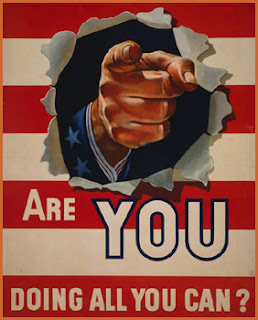 Patriotism is not short, frenzied outbursts of emotion, but the tranquil and steady dedication of a lifetime. Adlai E. Stevenson
Patriotism is not short, frenzied outbursts of emotion, but the tranquil and steady dedication of a lifetime. Adlai E. StevensonPatriotism is a strange animal, balanced between extreme, scary, jingoistic, ethnocentric nationalism and America hating, pinko wacko insanity. The wife and I gave blood at Fenway and 9/11 and you were stirred by the number of fireman, policeman and other civil servants who chose that day to give along with the "normal folks" like us that calculated this day into our giving as part of our remembrance of the day.
Everyone of us was greatly effected by 9/11, my mother was at the Javits center in Manhattan when it happen, my brother in law in a sequence of events ended up doing 4 combat tours in Afghanistan and Iraq. The feelings we all had that day and the months of followed were mixed with anger, sorrow, fear and wanting of retribution. But for many of us, and especially for me, it was the first day that I really felt like I was an American.
There was little most of could do as Americans, American flags became popular everywhere as a virtual competition of outward symbolism of patriotism. This patriotism was not very well thought out. It was that combination of pride and fear, a reaction to an attack. Not necessarily, a dedication to the Constitution or the frameworks that make this nation great, those of infrastructure, resources, both human and natural and the ability of our government despite it's weaknesses, to continue a democratic tradition for over 200 years; but rather a childlike dedication to symbols and slogans.
 It was a beautiful day out, that 9/11/01 and all of us have different memories. The following Global War on Terror has taken us to a bizarre place as Americans. WWII as a conflict was a much more terrible, and horrific war, there were days were hundreds and even thousands of Americans lost their lives, not to mention the millions of combatants and non-combatants that lost their lives, this was total war. The entire investment of all the nation's resources towards defeating the Axis. As I and many others so frequently muse, there is no sense of this sacrifice today, only by our soldiers and their families and perhaps our grandchildren who will have to pay for this war.
It was a beautiful day out, that 9/11/01 and all of us have different memories. The following Global War on Terror has taken us to a bizarre place as Americans. WWII as a conflict was a much more terrible, and horrific war, there were days were hundreds and even thousands of Americans lost their lives, not to mention the millions of combatants and non-combatants that lost their lives, this was total war. The entire investment of all the nation's resources towards defeating the Axis. As I and many others so frequently muse, there is no sense of this sacrifice today, only by our soldiers and their families and perhaps our grandchildren who will have to pay for this war.That beautiful, sunny day has brought us to a new America. I'm unsure if the fear and anguish of 9/11 has played itself out yet. Even in the darkest days of WWII, I think most Americans could visualize what victory was. The methodical turning back of the Axis tide, the proverbial jumping on Berlin would exhibit victory and peace. What does victory look like today? Is it the evangelical spread of participatory democracy?, of a full franchise for entire populations?, freemarkets of the Friedman variety in every nation across the Globe? I've never heard anyone try to articulate it in any reasonable matter? What does victory in the Global War on Terror looks like.
The smarter Generals, leaders and academics have defined it as a multi-generational process. A multiple generational winning of hearts and minds. The question is, if the United States is to show the leadership across the world, it seems we need to be a much better role model. Our own rule of law, which is likely unparallelled in world history is being riddled by corruption, lies, and even more insidious an eroding of civil liberties in the name of national security.
Somewhere between the fearmongering that benefits some politicians in the United States as being "more patriotic than thou" and the home grown America haters, many of whom have greatly benefited from its largess, there is a need to be a new generation of American patriots, willing to have the introspection necessary for a democratic resurgence so our leadership is moral as well as military and economic.
I see few current politicians who can provide this leadership. Where is this generation's Lincoln, Roosevelt, Wilson who rises above the pedestrian nonsense of a national campaign to provide true leadership?



